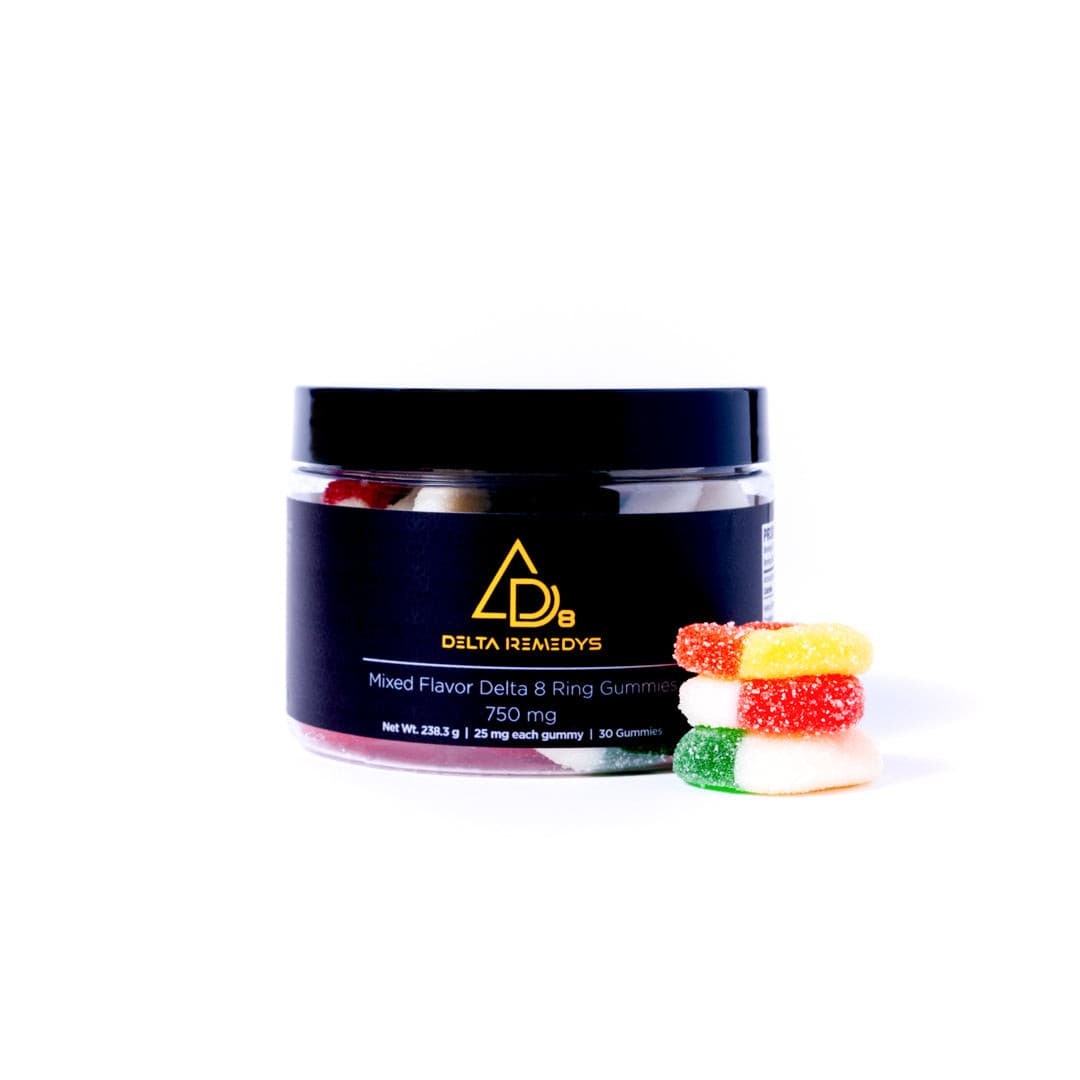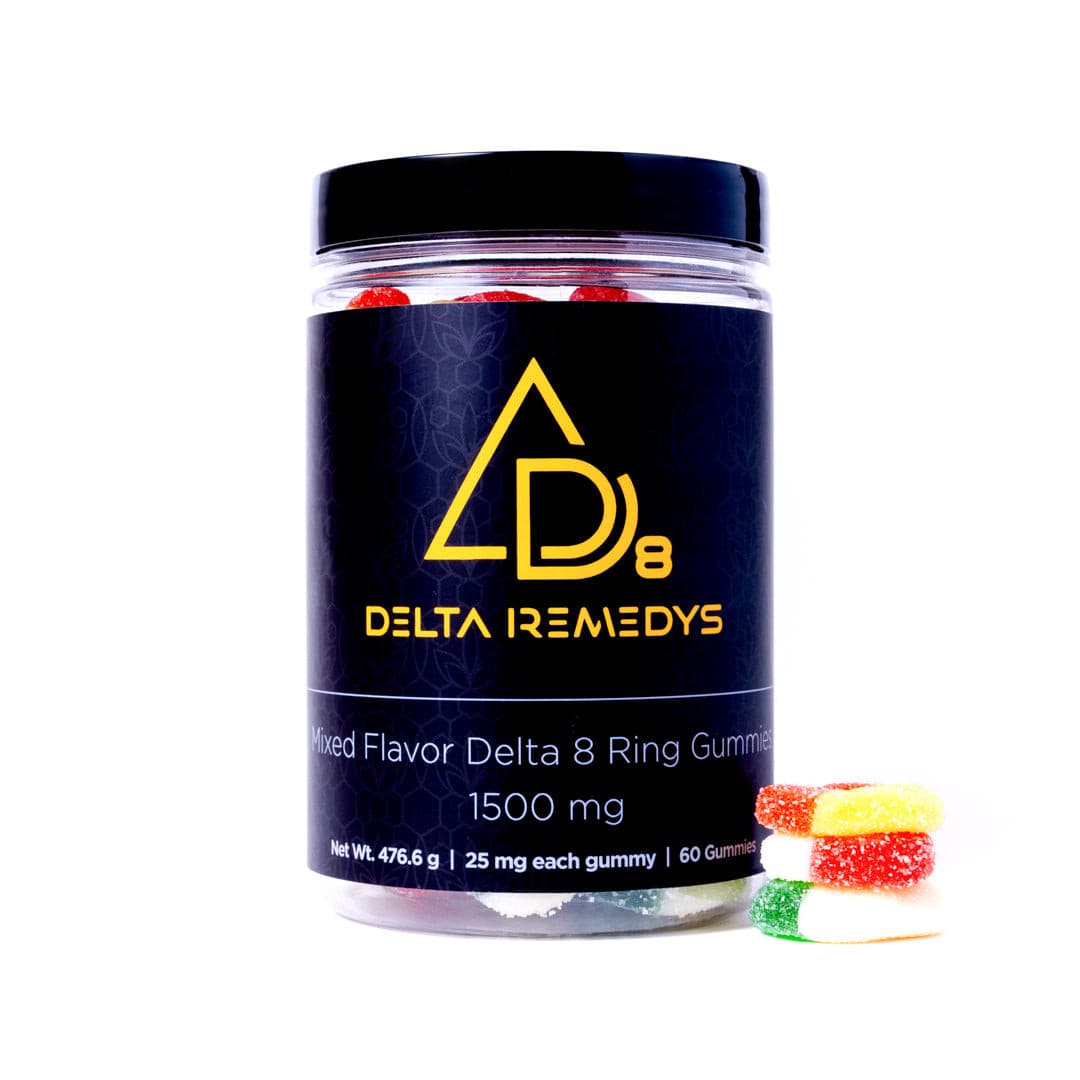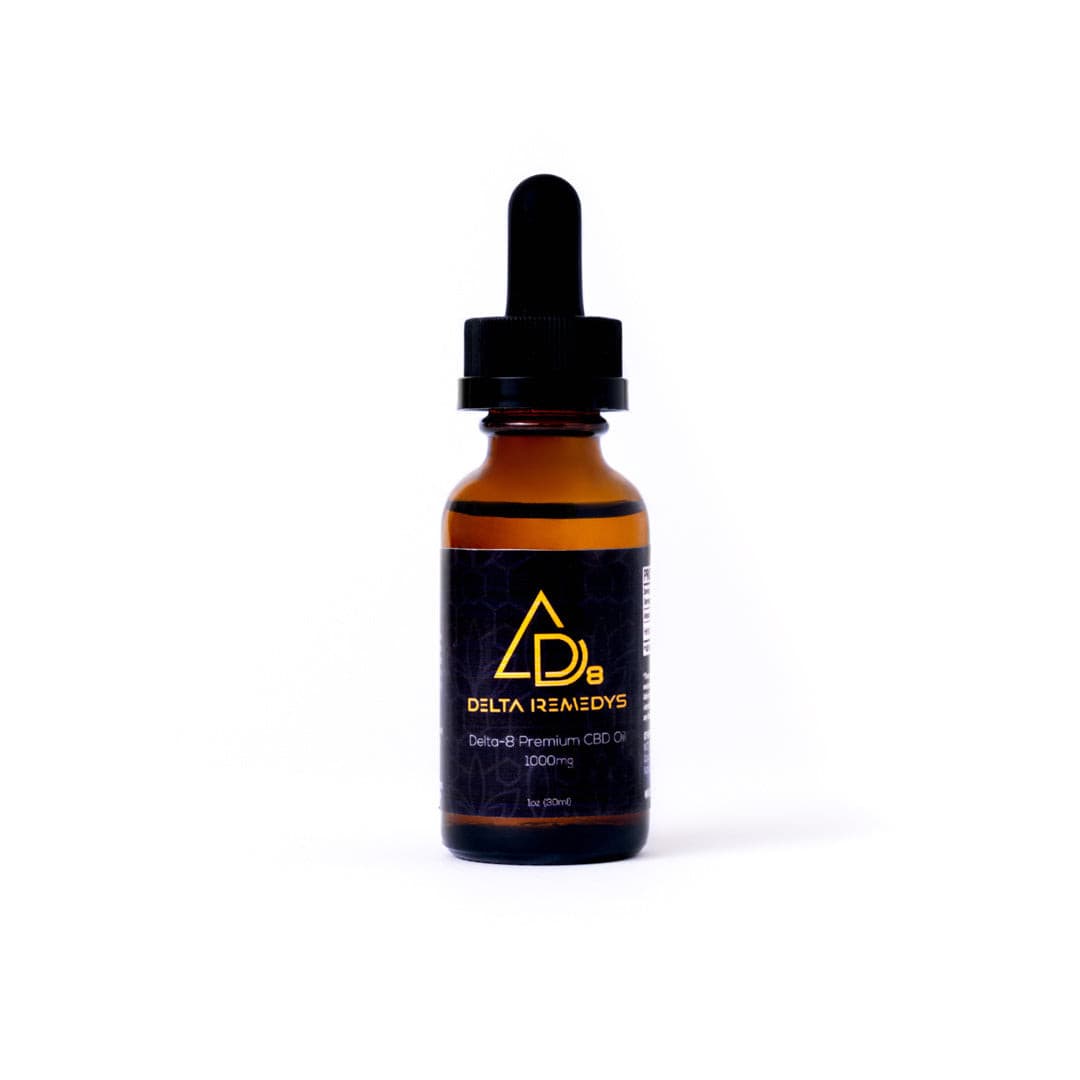Many Delta-8 users are investigating its possible advantages, from pain treatment to anxiety alleviation, as its popularity keeps growing. Products like Delta 8 THC Gummies and Delta 9 THC gummies are becoming more and more popular due to these therapeutic benefits.
Delta-8 can, however, have negative effects on certain users, including possible gastrointestinal problems, much as any other cannabinoid or supplement might.
Diarrhea is among the rarer side effects noted in the new users of Delta 8. The probability of diarrhea, its possible causes, and how users could reduce the danger while optimizing Delta-8 THC’s advantages will be discussed in this article.
So, keep reading fellas!
Brief Overview of Delta 8 THC
Found in trace levels in cannabis plants—especially hemp—Delta-8 THC is a naturally occurring cannabinoid. Delta-8 generates lesser psychoactive effects than its more well-known relative, Delta-9 THC, which makes it a desirable choice for those who want to reap the advantages of THC without the powerful “high.”
Chemically, Delta-8 THC is somewhat similar to Delta-9 except for the location of a double bond in its structure. Still, this little modification produces a far more balanced and seamless user experience.
Here is a brief overview:
- Milder psychoactive effects: Delta-8 provides a smoother, less intense “high” than Delta-9 THC.
- Legal gray area: Though legal under the 2018 Farm Bill, individual states may regulate or ban it.
- Similar structure to Delta-9: The difference is a slight molecular variation that leads to less potent psychoactive effects.
Legally, Delta-8 falls in a dubious zone. That is why we have covered some important topics regarding its legality, such as “Can you take Delta 8 on a plane?” or Can you fly with Delta 8?”
Under the 2018 Farm Bill, it is regarded as legal at the federal level, provided it comes from hemp and has less than 0.3% Delta-9 THC. This has made it accessible to users in many states, even in areas where Delta-9 THC is still prohibited.
However, individual states have the power to control or forbid Delta-8, and local regulations will greatly affect its legal standing.
Delta 8 – Diarrhea as a Side Effect
Although most Delta-8 THC users report no major side effects, there have occasionally been complaints of gastrointestinal difficulties, including diarrhea. Though rare, this adverse effect can result from several different things.
These could include the person’s sensitivity to cannabis, their ingestion technique, or even the Delta-8 product they are now using’s particular formulation. Moreover, you can be affected by the following factors:
- Personal sensitivity: Some users may be more prone to digestive issues with cannabinoids.
- Consumption method: Products with carrier oils like MCT may cause digestive discomfort in sensitive individuals.
- Higher doses: Larger doses of Delta-8 may stress the digestive system.
Some Delta-8 products, for example, include carrier oils like MCT oil, which sensitive people may find uncomfortable for their digestion.
Higher Delta-8 dosages might also tax the digestive system more, which could cause diarrhea.
Fortunately, most adverse effects are temporary and can be controlled by changing the dosage or moving to another product formulation, such as those found in high-brand items like THC Gummies, HHC Gummies, Delta 10 Gummies, Delta 8 Gummies, and Delta 9 gummies by Delta Remedys.
How Delta 8 Interacts with the Digestive System
The endocannabinoid system (ECS) is vital in controlling several body processes, including digestion. The ECS consists of endocannabinoids, receptors, and enzymes cooperating to preserve homeostasis—that is, balance—within the body.
The ECS aids in controlling digestive system processes, including inflammation, gut motility—food transit through the digestive tract—and hunger.
Cannabinoids like Delta-8 THC can interact with the ECS to have direct effects on the digestive system. Delta-8’s capacity to control gut motility, for instance, can aid digestion and assist in lowering symptoms such as constipation or nausea.
Furthermore, Delta-8’s anti-inflammatory action could help those with digestive disorders marked by inflammation, such as Crohn’s disease or irritable bowel syndrome (IBS).
Delta-8 THC mostly interacts with CB1 and CB2 receptors, two kinds of receptors in the ECS. Though prevalent in the gut, CB1 receptors are mostly in the brain and central nervous system.
Delta-8 can assist in controlling signals linked to hunger and gastrointestinal motility when it binds to CB1 receptors in the digestive tract, lowering nausea and encouraging better digestion.
- CB1 receptors: Found predominantly in the brain and gut, Delta-8’s interaction with CB1 receptors can reduce nausea and improve gut motility.
- CB2 receptors: Located mainly in the immune system and digestive tract, Delta-8’s interaction with these receptors can help reduce inflammation in the gut.
Conversely, CB2 receptors are mostly located in the immune system and peripheral organs, including the gastrointestinal tract. For those with disorders including IBS or Crohn’s disease, Delta-8’s interaction with CB2 receptors may help lower gut inflammation. By turning on these receptors, Delta-8 can assist in appropriate digestion and help regulate gut health.
Positive Effects on Gut Health
The interaction of delta-8 THC with the ECS can provide several favorable effects on gut integrity.
First, its capacity to lessen nausea makes it a desirable choice for those suffering from side effects from chemotherapy or diseases linked to nausea. Delta-8 can also help people maintain a better appetite and avoid nausea from ruining daily life by relaxing the digestive tract.
For those with chronic digestive problems, Delta-8’s anti-inflammatory qualities can also help reduce gut inflammation. Because Delta-8 can help lower inflammation and encourage a better digestive environment, conditions like IBS and Crohn’s disease—marked by inflammation and discomfort—may benefit from its relaxing properties.
Minimizing Digestive Discomfort Due to Delta 8
- Start with a Low Dose:
Start low when using Delta-8 THC, especially if you are new to cannabis or prone to stomach intolerance. Starting modestly and then progressively raising the dosage will help you to evaluate how the substance affects your body and prevent overloading the digestive tract. This method reduces the possibility of side effects like diarrhea and lets you determine the ideal dosage that offers the desired results without aggravation.
- Stay Hydrated
Using Delta-8 THC requires staying hydrated since dehydration aggravates any gastrointestinal problem, including diarrhea. Drinking lots of water improves good digestion, helps preserve fluid balance, and avoids possible pain connected with dehydration. Maintaining your hydration will help lower your chance of digestive problems and enhance your Delta-8 experience generally.
- Choose Products Carefully
Your digestive system may react differently depending on the Delta-8 product you decide upon. Certain items, such as tinctures or foods, can have additives or carrier oils that sensitive people would find upsetting their digestive system. Reading ingredient labels carefully and choosing items with few or natural ingredients is vital.
To help reduce the likelihood of diarrhea or other stomach trouble, steer clear of oils known to aggravate digestive problems, such as MCT oil. Ensuring the greatest possible experience depends on selecting premium, lab-tested Delta-8 items from reliable manufacturers.
- Take Delta 8 with Food
Delta-8 THC taken with food can assist in easing digestion and lower gastrointestinal problems. Eating Delta-8 empty-handed might speed up its absorption, which could cause some users stomach problems.
Delta-8 is gradually absorbed with food, particularly meals high in healthy fats, which might ease digestive system problems. This approach offers a more pleasant and balanced experience; hence, it could also help reduce nausea or diarrhea.
Benefits and Positive Aspects of Delta 8 THC
Delta-8 THC has several advantages, even if adverse effects are reported sometimes. Delta-8’s capacity to offer therapeutic comfort free from Delta-9 THC’s strong, high effects is among its most enticing features.
After using Delta-8, users frequently report feeling calmer, less nervous, and more concentrated. This makes it a great choice for those who stay functional and attentive yet want relief from tension, anxiety, or chronic pain.
Here is what you can expect from quality Delta 8 products, like different types of edibles and even Delta 8 tinctures, as compared to Delta 9 tinctures:
- Relaxation: Provides a calm, focused experience without the overwhelming effects of Delta-9.
- Appetite stimulation: Beneficial for those undergoing treatments like chemotherapy.
- Sleep aid: Helps improve sleep quality and ease insomnia symptoms.
- Pain relief: Ideal for managing chronic pain conditions, including arthritis and migraines.
Apart from its relaxing properties, Delta-8 has been hailed for its capacity to boost appetite, lower nausea, and enhance sleep quality.
Delta-8 can offer much-needed respite for those enduring medical treatments, including chemotherapy, which can induce nausea and appetite loss. Its analgesic qualities also make it a common choice for people with chronic illnesses, including migraines or arthritis.
Delta 8 vs Delta 9 – All the Major Differences
Chemical Structure
Delta-8 and Delta-9 THC differ primarily in their chemical structures. Although their molecular formulas are the same, their positions of a double bond differ. Whereas in Delta-9, this double bond is on the ninth carbon atom, in Delta-8 THC, it is on the eighth carbon atom. Although this variation seems small, it greatly affects the way the two cannabis molecules interact with the body.
Delta-8 and Delta-9 THC attach to receptors in the endocannabinoid system of the body depending on this minute change in structure. Because Delta-8 has a smaller affinity for the CB1 receptors in the brain, its psychoactive effect is less than that of Delta-9.
Delta-8 is thus sometimes described as offering a “clear-headed” high, with less of the anxiety, psychosis, and mental fog that might occasionally accompany Delta-9 THC consumption.
Impact on the Body and Mind
Strong psychotropic effects of delta-9 THC are well-known; in sensitive users, these can cause euphoria, changed perception, and even anxiety or paranoia. Conversely, Delta-8 THC edibles offer a lot more controllable experience. Usually, its effects are said to be soothing and uplifting, free of the strong high that could interfere with regular tasks.
For those who wish for the therapeutic advantages of THC but are sensitive to the stronger mental and physical impacts of Delta-9 or weed gummies, Delta-8 THC is an appealing alternative because of its different effects.
After Delta-8, users often report feeling calm, concentrated, and more at ease; thus, Delta-8 is appropriate for daytime use or social events where mental clarity is vital.
Enjoy a Smoother Experience with Delta 8
Delta-8’s capacity to provide a smoother, more balanced experience is one of the key factors driving its appeal. Delta-8’s lesser psychoactive effects let consumers experience THC’s soothing and therapeutic qualities without having to deal with the sometimes severe mental fog or paranoia that might accompany Delta-9 use.
For people who are new to THC and still confused about “is delta 9 real weed?” or seeking a more moderate experience, Delta-8 is, therefore, a great option!
Delta-8’s smoother high also makes it a better choice for those who wish to keep functionality all through the day. Delta-9 can occasionally leave users feeling mentally foggy or drowsy; Delta-8 offers a more clear-headed experience that lets people stay focused and productive while still experiencing the advantages of THC.
The Positive Side of Delta 8 THC
- Mild Psychoactive Effects
For those seeking relief from stress, worry, or pain without the strong high that could interfere with daily activities, Delta-8 THC’s mild psychoactive properties make it a great alternative. Many consumers discover that Delta-8 offers a balanced, useful experience that lets them stay attentive and engaged while yet gaining from the relaxing properties of THC.
Delta-8 is thus fit for daily usage, especially for those who depend on cannabis to control chronic diseases. Delta-8 can be used all day without noticeably compromising mental clarity or output, whether utilized to help with pain or anxiety.
- Promotes Relaxation
The ability of Delta-8 THC to induce relaxation and lower tension is among the most often mentioned advantages. Unlike Delta-9 THC, which can occasionally cause anxiety in sensitive people, Delta-8 usually causes relaxing effects free of the risk of increased paranoia or anxiety. For people trying to control anxiety, particularly in high-stress settings, this makes it a common choice.
Delta-8 THC interacts with the endocannabinoid system in the body, mostly with CB1 receptors, which control mood. Delta-8 is a useful tool for those suffering from chronic stress or anxiety problems since it binds to these receptors to help lower emotions of anxiety and encourage a feeling of calm.
- Pain Relief
People with chronic pain disorders have come to know Delta-8 THC as a preferred choice because of its analgesic qualities. Delta-8 can help control pain signals and lower inflammation by interacting with the endocannabinoid system of the body, so offering treatment for disorders including neuropathy, migraines, and arthritis.
Many consumers discover that Delta-8 provides notable pain relief without the powerful psychoactive effects of Delta-9, so enabling them to control their pain without feeling unduly depressed or intoxicated.
- Appetite Stimulation
Like Delta-9 THC, Delta-8 THC is a great tool for those who suffer from appetite loss brought on by medical disorders or therapies like chemotherapy since it can increase hunger. The lesser psychoactive effects of Delta-8 help people restore their appetite without having to deal with the occasionally extreme high that can follow Delta-9 use.
Maintaining appropriate nutrition can be difficult for those suffering from chronic illnesses or medications that lower appetite. Delta-8’s potential to increase appetite will enable these people to eat enough food to maintain their health and recuperation, therefore enhancing their general well-being.
- Improved Sleep
People seeking a better quality of sleep also often utilize delta-8 THC. Its soothing qualities help one fall asleep and stay asleep all through the night. Delta-8 is a natural substitute for conventional sleep aids since it lowers anxiety and pain and promotes relaxation, enhancing sleep patterns.
Delta-8 is a useful aid for those suffering from insomnia or other sleep disorders. Many users claim to wake up feeling more rested and rejuvenated after using it. Delta-8 can assist consumers in reaching a deeper, more peaceful sleep, therefore promoting better general health and well-being.
Delta 8 and Gut Health
- Anti-inflammatory Potential for Conditions Like IBS and Crohn’s
For those with digestive disorders, including Crohn’s disease and irritable bowel syndrome (IBS), Delta-8 THC’s interaction with the endocannabinoid system (ECS) offers possible anti-inflammatory properties.
The capacity of the cannabinoid to attach to CB2 receptors, which abound in the gastrointestinal system, helps lower gut inflammation. This anti-inflammatory reaction helps those with certain chronic diseases reduce symptoms, including bloating, cramps, and stomach pain.
Delta-8 might provide a natural therapeutic alternative for controlling the pain and inflammation related to certain digestive problems by adjusting inflammation.
- Appetite Stimulation and Nausea Reduction for Those with Digestive Issues
Delta-8 THC is especially helpful for those who suffer from appetite loss brought on by digestive problems or therapies like chemotherapy since it is also well known for stimulating appetite. Many users discover that Delta-8 helps them restore hunger without producing too strong psychotropic reactions.
Delta-8 has also shown potential in lessening nausea, a frequent complaint of those with digestive problems or undergoing medical treatments.
By encouraging a good appetite and lowering nausea, Delta-8 can help people maintain appropriate nutrition and enhance their general gut health.
In a summary:
- Milder psychoactive effects: Delta-8 provides relaxation without the intense mental fog or anxiety that can sometimes accompany Delta-9 THC.
- Clear-headed experience: Most users feel calm, grounded, and focused, ideal for stress relief, pain management, and improved sleep.
- Positive feedback: User testimonials frequently highlight Delta-8’s ability to help with chronic pain, anxiety, and sleep without strong side effects.
Common Misconceptions About Delta 8
One prevalent belief regarding Delta-8 THC is that it generates the same strong psychoactive effects as Delta-9 THC, thereby causing comparable side effects such as paranoia, anxiety, or extreme drunkenness.
If you are confused about taking HHC vs THC or THCP vs THC products, Delta 8 is the answer!
Delta-8 provides a more balanced experience free from the intensity sometimes associated with Delta-9, but its psychedelic effects are far milder.
Another fallacy is that Delta-8 always results in stomach problems, including diarrhea. Although some users may have minor stomach trouble, this side effect is infrequent, and most users, especially when taken in sensible dosages, tolerate Delta-8 rather well.
Many times, Delta-8 causes anxiety stemming from misinterpretation of its effects and safety. With fewer negative effects than Delta-9 THC, Delta-8 THC is a well-researched cannabinoid with therapeutic properties, including lowering anxiety, encouraging relaxation, and pain relief.
Emphasizing adverse effects like gastrointestinal discomfort or nausea is crucial as they are rare and usually connected to high dosages or certain product components.
Most consumers can experience Delta-8’s advantages without side effects by beginning with a modest dose and selecting premium items. If you are new to the world of Delta 8, don’t forget to check out our blog about “does delta 8 show up on drug tests?”
Knowing the science underlying Delta-8 helps debunk false ideas and promotes responsible, sensible use.
Legal Status of Delta 8
Delta-8 THC’s legal posture differs greatly depending on where you live in the United States. Although the 2018 Farm Bill approved hemp-derived cannabinoids at the federal level, individual states have jurisdiction to control or forbid their distribution and usage.
Consequently, some states let Delta-8 THC products while others have either outright banned them or limited sales.
While some states, such as New York, Colorado, and Alaska, have passed legislation restricting or prohibiting Delta-8 THC availability, others, like Texas and Florida, allow its sale. Before buying or utilizing Delta-8 items, consumers must be aware of their state’s current laws.
Delta-8 THC’s legality was substantially aided by the 2018 Farm Bill. The measure approved the growing and selling of hemp and its derivatives provided their Delta-9 THC level by dry weight is less than 0.3%. Derived from hemp, Delta-8 THC fits within this legislative framework.
However, the measure leaves a legal gray area since it does not specifically target Delta-8 THC.
Although legally federal, several states have adopted a more conservative posture and banned Delta-8 because of its hallucinogenic properties. The absence of explicit federal direction results in Delta-8’s legal status being subject to interpretation, producing different state laws.
Final Thoughts
With quite minimal negative effects, Delta-8 THC provides many advantages, including relaxation, pain alleviation, and better sleep. Though rare, diarrhea and other digestive problems might arise; careful use often helps prevent these problems.
Most users can minimize discomfort by beginning with a low dosage, keeping hydrated, and selecting high-quality goods.
Delta-8 THC has medicinal effects, and it presents a reasonable and pleasurable substitute for Delta-9 THC that can fit daily life without too strong psych activity.




